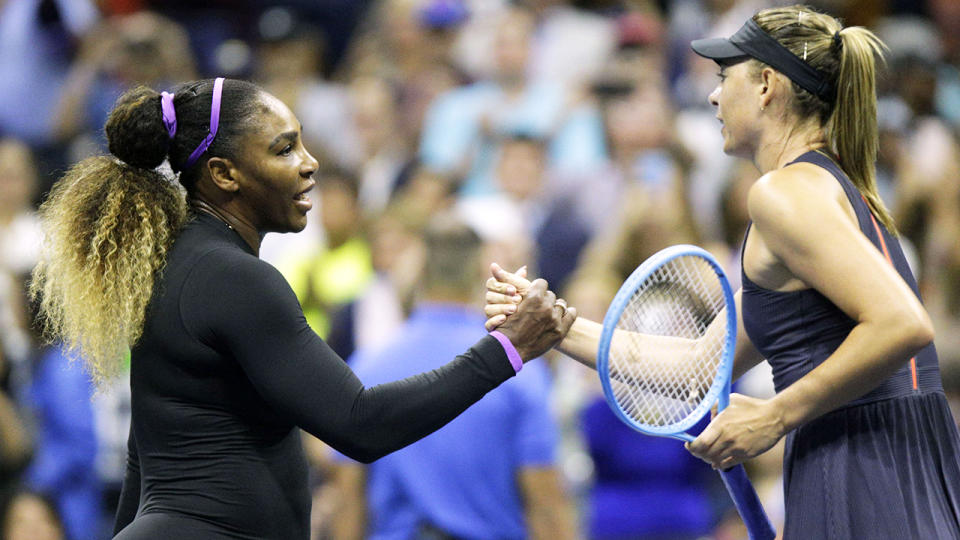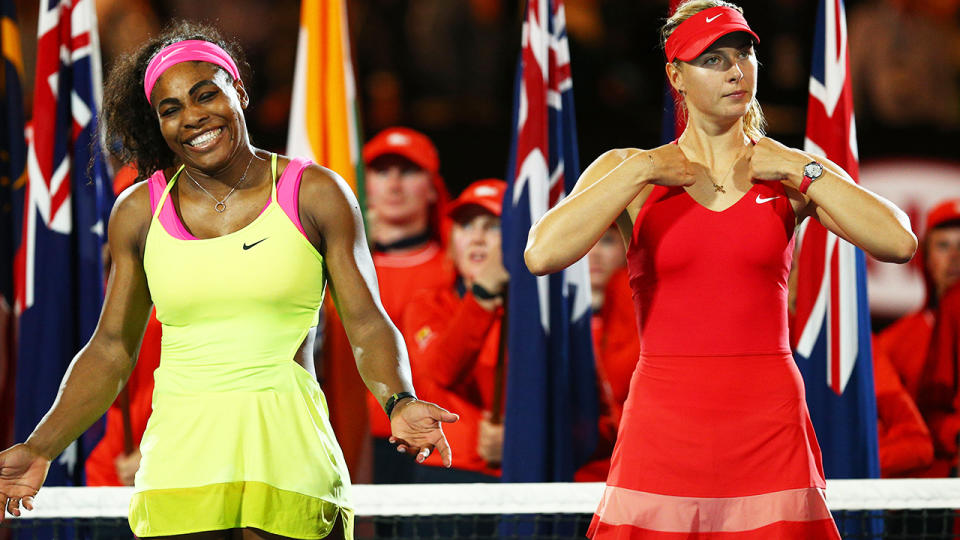How brutal Serena Williams loss sparked Maria Sharapova's retirement
Maria Sharapova has revealed how a brutal loss to Serena Williams at the 2019 US Open convinced her it was time to retire.
The Russian five-time grand slam champion who became one of the highest-paid sportswomen in the world announced the end of her career at the age of 32 on Wednesday.
‘WON’T SHED TEARS’: Ugly truth behind Maria Sharapova's retirement
‘LEGEND’: Novak Djokovic's touching tribute to Maria Sharapova
Siberia-born Sharapova, whose Wimbledon victory over Serena in 2004, aged 17, propelled her to superstardom and riches, broke the news in an article for magazine Vanity Fair.
“I'm new to this, so please forgive me. Tennis - I'm saying goodbye,” Sharapova wrote in a farewell article.
Sharapova also lifted the lid on how a 6-1, 6-1 thrashing at the hands of Serena at last year’s US Open sparked her decision to hang up the racquet.
“There is no mastering tennis – you must simply keep heeding the demands of the court while trying to quiet those incessant thoughts in the back of your mind,” Sharapova wrote.

“Did you do enough—and more—to prepare for your next opponent? You’ve taken a few days off—your body’s losing that edge. That extra slice of pizza? Better make up for it with a great morning session.
“Listening to this voice so intimately, anticipating its every ebb and flow, is also how I accepted those final signals when they came.
“One of them came last August at the US Open. Thirty minutes before taking the court, I had a procedure to numb my shoulder to get through the match.
“Shoulder injuries are nothing new for me—over time my tendons have frayed like a string.
“I’ve had multiple surgeries—once in 2008; another procedure last year—and spent countless months in physical therapy.
“Just stepping onto the court that day felt like a final victory, when of course it should have been merely the first step toward victory.
“I share this not to garner pity, but to paint my new reality: My body had become a distraction.”

After the Russian won Wimbledon in 2004, the Sharapova-Williams rivalry was supposed to be one that matched Federer-Nadal as one for the ages, but it simply did not pan out that way.
She would beat Williams again at that year's season-ending tour championship to improve to 2-1 against the American - but never won another one of their matchups, dropping the next 19 in a row.
Sharapova lost the last four matches she played at major tournaments, with first-round exits in her past three appearances, including at the Australian Open in January.
That turned out to be the last match of her career and made her 0-2 this season.
Sharapova’s complicated legacy
Her decision to quit is hardly a major surprise as she has been a pale imitation of her former self since returning in 2017 from the 15-month ban for taking prohibited heart drug meldonium at the 2016 Australian Open.
"Looking back now, I realise that tennis has been my mountain. My path has been filled with valleys and detours, but the views from its peak were incredible," she said.
"After 28 years and five grand slam titles, though, I'm ready to scale another mountain, to compete on a different type of terrain."
Tennis showed me the world—and it showed me what I was made of. It’s how I tested myself and how I measured my growth. And so in whatever I might choose for my next chapter, my next mountain, I’ll still be pushing. I’ll still be climbing. I’ll still be growing. pic.twitter.com/kkOiJmXuln
— Maria Sharapova (@MariaSharapova) February 26, 2020
Sharapova, whose trademarks were her ferocious intensity and pounding groundstrokes, completed her career grand slam when she won the French Open in 2012.
She also won at Roland Garros again in 2014, her last major title.
She became the first Russian woman to reach number one in the rankings in 2005 and claimed the US Open title in 2006. She also won the Australian Open in 2008.
with AAP

